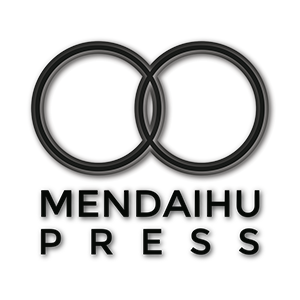I’ll admit, I have a lot of writing reference books that have a nice sheen of dust on them. It’s an embarrassing admittance, but I have to put it out there. I’d like to think I have a pretty decent grasp of grammar and style in my writing, even if my blog entries and novel first drafts leave William Strunk and EB White twitching in their graves at times. I’ve cracked a few book spines here and there when need be (usually my copy of Webster’s Collegiate or the ever-helpful Flip Dictionary), but I think it’s high time I started utilizing them more. Here’s a few that I find helpful, and you might too.
Ray Bradbury, Zen in the Art of Writing. I picked this one up right about the time the first seeds of the Mendaihu Universe were sown in 1993. I’d always been a big Bradbury fan (Dandelion Wine is one of my top favorite books ever), and always resonated with his style and method of writing. His essays on writing inspired me to get out there and do it instead of just talking about it. I reread this every other year or so, just to bring things into perspective again.
University of Chicago Press, The Chicago Manual of Style. Seriously, I don’t know why I ignored these kinds of books for so long. I may have a decent grasp of style and grammar, but I’m pretty sure I screw up the nitpicky stuff more than I wish to admit. Everyone should have at least one manual of style kicking around, even if it is just to check if the period should go inside or outside the quotation mark at the end of a sentence.
Barbara Ann Kipfer, Flip Dictionary. A. has often been at the receiving end of that writer’s question, “What’s the word for…?” when I’m having a brainfart, and this one’s great for fixing that. It’s a reverse-lookup dictionary for the most part, but it also has short sections of related “type of” words (one being a list of hairstyle descriptions and their names afterwards).
Angela Ackerman & Becca Puglisi, The Positive Trait Thesaurus, The Negative Trait Thesaurus, and The Emotion Thesaurus. Someone on Twitter suggested these to me at some point (I forgot who and when), but I picked them up soon after, and they get a lot more use than I expected. I do tend to overuse certain expressions without thinking — a rough draft of The Persistence of Memories had nearly all the characters sighing in frustration at some point — and these books give me excellent alternatives.
Robert Lee Brewer, 2014 Guide to Self-Publishing. I’m excited that publishing is now at the point where DIY is viable and not frowned upon nearly as much anymore. I’m even more fascinated by the fact that WD Books has finally released a self-pub version of their annual Writer’s Market book. It’s set up pretty much the same way, giving a section to editorial services, writers’ conferences to look for, and other items of interest. There are also quite a few interesting essays in there as well regarding the business of self-publishing that are worth a look.
Joel Friedlander & Betty Kelly Sargent, The Self-Publisher’s Ultimate Resource Guide. This one popped out at the end of the year and is a nice and lean ebook on par with Brewer’s Guide. Quite slim at 141 pages, it dispenses with any essays, how-to’s and so on, and instead just offers the online listings of a number of companies, artists and aggregators that can help you get your self-published book out and noticed. If you know exactly what you need…say, an editing service to fix your typos, a specific image for your cover, and an aggregator to get the book out to multiple platforms? This is a list of possible candidates for you, without the distraction of everything else you don’t need. [Okay, I freely admit this one was a shameless plug, as I got a free ARC out of it if I gave it a review on my blog. Still, I found it exactly what I need for my recent possible self-pubbing endeavors. Plus, Joel is an excellent resource on the self-pub business, and Betty writes some great self-pub articles in Publisher’s Weekly that are worth searching out.]
Publisher’s Weekly. I wouldn’t suggest this magazine for the beginner writers (I’d suggest The Writer, Poets & Writers and Writer’s Digest instead), but if you’re a professional writer or just about getting there, this one’s well worth the price. It gives you weekly news on what’s going on in the publishing world, book and conference info, weekly sales charts, and quite the extensive (and very diverse!) review section that’s contributed to my TBR pile. This magazine focuses on the non-writing end of things–what goes on once your book is out in the wild. It’s eye-opening, and definitely puts things into perspective.
What are some of your favorite reference books? Come and share!

